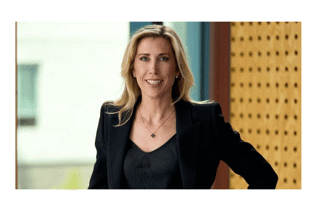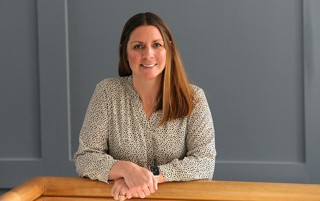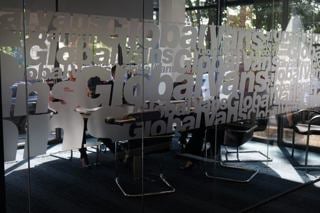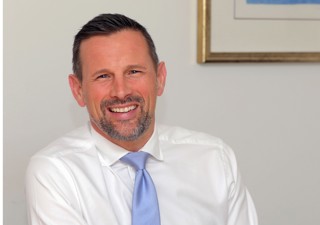A decade has passed since Fleet News last spent time with Venson Automotive Solutions managing director Samantha Roff to discuss her business strategy and the wider fleet environment.
Ten years in which so much has happened: Brexit, Covid, war in Ukraine, global vehicle and parts supply shortages, decarbonisation roadmaps and ZEV Mandates, even a new head office for Venson, to name but a handful – it underlines how even the best laid plans can come unstuck due to wider market forces.
In 2013, Venson was funding 10,400 vehicles and fleet managing another 3,000, with plans to grow; it was operating three workshops to support a variety of conversion and repair and maintenance needs, with plans to open more; and it had around 100 customers where it was either a sole or a dual funding provider.
As we sip a mid-morning coffee around the boardroom table at Venson’s new office in Hampton with Roff and marketing specialist Alison Bell, it becomes clear how external forces have affected the narrative from our previous meeting.
Far from achieving those growth aspirations, Venson is today funding 10,265 vehicles (FN50 2023), and partnering 60 customers, of which almost two-thirds are sole supply. Meanwhile, contract changes have seen it close two workshops, leaving it with a solitary site.
“People think leasing and fleet management is tough, but aftersales is very hard – recruitment, utilisation, margins, efficiency, rising cost of commercial rents are a huge challenge to viability,” Roff says.
“The management time, cost and energy need to service those workshops distracted us, so we had to change.”
Profitable with 98% retention
Crucially, though, Venson remains profitable, its retention levels continue to sit at 98% and it remains true to Roff’s philosophy of the ‘Venson stamp’, her unwavering dedication to customer service.
This dedication saw Venson’s office remain open throughout the Covid pandemic with many staff at their desks every day during the national lockdown to support key worker customers in the emergency services. It continues to be resolutely pro-office, believing this delivers a higher standard of service than is possible from hybrid working.
“Our core team, including the management team, came into the office every day. We stood shoulder-to-shoulder with people on the front line to keep their fleets going,” Roff says.
“Office working creates the right culture. We are a service business and to sell good service you need your teams working together.”
Since 2013, the political landscape has also changed, with new legislative priorities triggered by the environmental agenda.
Back then, electrification was not even a passing topic of conversation – even though Venson had held its first EV day in 2008; today it dominates our early exchanges.
Roff is critical of the decarbonisation roadmap, claiming it puts too much emphasis on full electric vehicles, overlooking the important stepping stone of plug-in hybrid (PHEV), particularly for the private buyer.
“There are no incentives for private buyers to switch to electric, and the incentives for fleets are to go straight from diesel to full electric,” she says.
“But that’s a big jump and there are many unnecessary barriers, such as different charge points, location of charging ports, different chargers and payment methods. This lack of consistency does not make it easy.
“Straight to zero is wrong,” Roff reiterates, warming to the task. “The incentives should’ve taken people though the hybrid model to get used to plugging in a vehicle and to give time to build the infrastructure. It’s then a small step from PHEV to full electric.”
BEV discounts start to surface
Price has also been a deterrent, but the ZEV Mandate quotas are starting to result in bigger discounts surfacing to stimulate market demand and ensure manufacturers hit their BEV targets on new car and van registrations.
Venson works in tandem with its customers, encouraging transition only when it works for their business model. With light commercial vehicles accounting for 62% of its fleet, and a large proportion of those returning to home rather than depot, the switch to electric is, by Roff’s own admission, “very slow”.
“There are businesses that can transition more quickly, such as supermarket and home delivery where vehicles return to depot, routes are local and the payload requirements are not high,” she says.
“But other businesses with heavier weight vehicles push payload to the max and they have issues with the battery weight.”
Roff has no problem with the current 4.25-tonne derogation rules insisting that the vans are treated as trucks for servicing and MOTs. Her advice is that all 3.5-tonne vans should be considered trucks rather than cars, with ‘HGV-light’ policies on preventative maintenance inspections every three months rather than six weeks, for instance.
She adds: “Even within a company there are fleets within fleets – some local business, some high mileage, some 24/7, some daytime running. You have to take all those sub fleet considerations into account when looking at the operational requirements. There is no one-size fits all.”
Nowhere does this lack of uniformity become more apparent than in fleet tenders, particularly when they are (under) prepared by arms-length procurement teams.
Bell says: “We often see blanket tenders which do not take different needs into consideration. They can be challenging for us to provide the best solution and we don’t always have the opportunity to have that conversation.”
It’s even more striking in the public sector where frameworks tend to be blind tenders, giving suppliers no opportunity to talk to the organisation to better understand their needs and ensure they have put together accurate paperwork and are asking the right questions.
“It’s rare to meet the fleet team before the contract is awarded,” says Roff, while Bell adds: “Are we surprised if they end up buying the wrong thing?”
Championing the professional fleet manager
The tender process is one of the reasons why Bell and Roff are resolute believers in the professional fleet manager.
“We champion the fleet manager; it’s better for us to work with them,” Roff says. “Our job is to help them, be an extension of their fleet operation, and to make them look better. It is not to replace them. We don’t want someone sitting opposite us that doesn’t understand fleet.”
Venson’s role, she adds, is to “remove the mundane tasks”, exploiting its scale and investment in systems, processes and people to lessen the admin burden and collate the data which can be fed back in a usable form to free up the fleet manager to run the fleet.
“It’s a partnership where we knit the data points together and give it to the fleet manager in a digestible way so they can drive the strategy and policy,” Roff says. “That’s the duty of a fleet management company.”
Venson’s strategy now centres on fleet management as an umbrella proposition. Funding is very much a secondary focus, with Venson working with customers to determine the best solution, whether contract hire, finance lease, contract purchase, outright purchase, salary sacrifice or a combination of various options.
“We have all of these on our fleet, as well as both pay-on-use and fixed maintenance,” Roff says. “If a customer is cash rich, we won’t say you should contract hire. Our focus is the fleet management services we can offer that go with the funding.”
Happy customers and staff
Offloading the two workshops formed part of the strategic redefinition to concentrate on fleet management, which coincided with Venson walking away from some Government-funded business that didn’t fit with the revised plan.
“We have now refocused our energies on being a fleet management company,” Roff says.
This steadfast commitment is aligned with prudent growth aspirations, which redirect the spotlight away from price in an industry that is often obsessed by it.
Venson claims to have never lost a contract to a rival company due to non-performance; it willingly admits some have exited on price.
“For us and our shareholders, it’s about running a profitable business that has happy customers and staff,” Roff explains. “It is not our intention to double the business and earn the same amount of money.
She adds: “We now have more customers taking on a range of services, such as rental and licence checking. We look to be a whole service provider and, for that reason, we will never take on a large number of new clients in any one year because we don’t want to lose our focus on the service.”
Her perfect scenario is to win “eight-to-10” new customers a year on an exclusive supply relationship which includes some form of fleet services proposition.
Roff remains wedded to portfolio management with account managers and support teams responsible for the same clients and no call centres.
“We deliver that level of service because of our structure. Drivers and fleets speak to the same person,” she says.
“We make our staff accountable and responsible; it’s not a call centre mentality. They understand the client and there is a sense of belonging – they think it’s their client, not Venson’s!”
To emphasise the point, Roff adds: “We are not in a race to the bottom. Existing customers drive your profitability. You can’t take them for granted and sacrifice them in the pursuit of new clients. That’s poor business and demoralising for staff. We’re looking for stability.”
As one of the longest serving managing directors in the leasing sector – 18 years and counting – Roff epitomises the stability she craves for Venson.
“I do it for the longevity of the business – for staff, shareholders, stakeholders, customers and the supply chain,” she says.























Login to comment
Comments
No comments have been made yet.